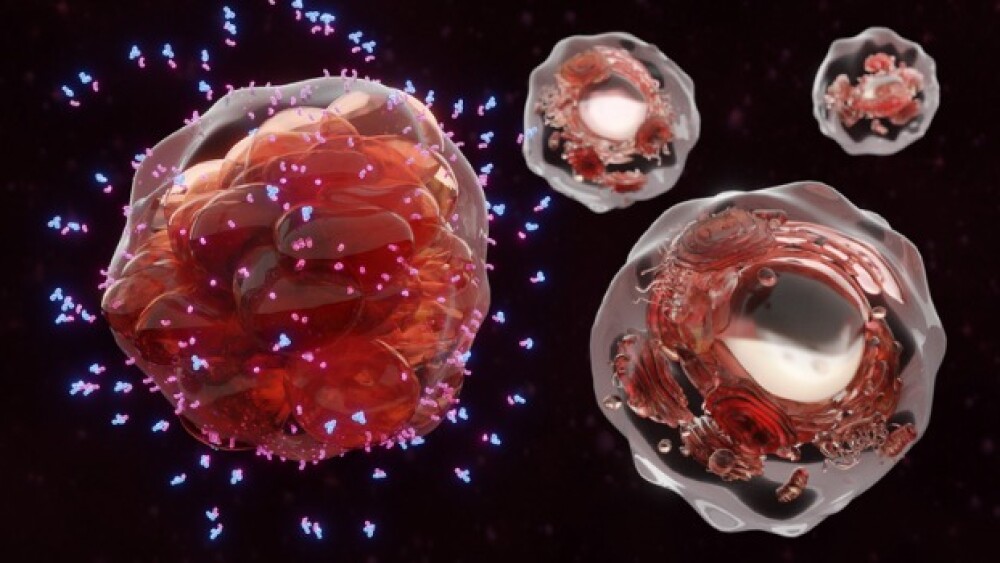FogPharma’s latest financing round will help fund the ongoing clinical development of the company’s potential first-in-class intracellular TCF-blocking β-catenin inhibitor being evaluated in a Phase I/II study.
Pictured: Cancer cell surrounded by cytokines/iStock, Marcin Klapczynski
FogPharma on Friday secured another funding round with a $145 million Series E raise to move its potential treatment for solid tumors forward into the clinic.
The round was led by Nextech Invest and had participation from new investors such as RA Capital Management, Rock Springs Capital, General Catalyst, Samsara Biocapital, Marshall Wace, Catalio Capital Management, Symbiosis, Sixty Degree Capital, and former J&J CEO Alex Gorsky.
The Series E also had participation from its existing investors, such as ARCH Venture Partners, Fidelity Management and Research Company, GV, Comorant Asset Management, and venBio Partners, among others. Entrepreneur Alexis Borisy has also joined FogPharma’s board of directors as well.
The company’s previous round came in 2022, netting a $178 million Series D in an effort to prepare the FOG-001 candidate for its entry into the clinic. The potential first-in-class intracellular TCF-blocking β-catenin inhibitor also received a $107 million Series C in March 2021.
According to FogPharma, the latest funds will go to the clinical development of FOG-001, which is in a Phase I/II study in solid tumors. The funding also will help to boost FogPharma’s pipeline, which includes several other assets in the discovery stage including one for acute myeloid leukemia.
As for FOG-001, the drug is specifically a helicon meant to block an oncogenic step in the Wnt/β-catenin signaling pathway, one of the most frequently active pathways in some cancers, according to the company. Mutations in the pathway are common in colorectal cancer.
“We believe FOG-001 may represent the long-awaited major technological breakthrough needed to address one of the most common yet unaddressed oncogenic signaling pathways,” FogPharma CEO Mathai Mammen said in a statement. “This financing will allow us to execute on our expanded clinical development and commercialization strategy to deliver FOG-001 to patients, while simultaneously strengthening our discovery efforts against other compelling intracellular targets that drive a range of diseases.”
The company’s helicon platform is meant to combine the “ultra-diverse and tunable stabilized helical peptide” with computational physics and AI techniques to find new programs in the effort to go after undruggable targets.
Tyler Patchen is a staff writer at BioSpace. You can reach him at tyler.patchen@biospace.com. Follow him on LinkedIn.






